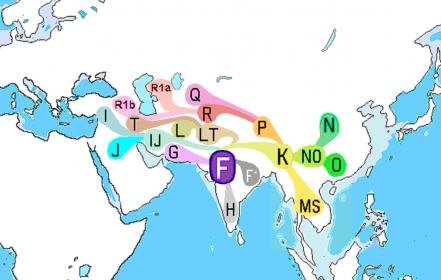Slog
Senior Test Player
- Joined
- Feb 15, 2015
- Runs
- 28,984
- Post of the Week
- 1
A little over 10 years ago I met an Indian from Mumbai for the first time in real life. When we were talking somehow the conversation came to the Mughal Empire, Akbar and Shah Jehan. He expressed surprise that I knew about the Mughals in such detail. I remember his words, 'I didn't know Pakistanis also learnt our history. Pretty cool!"
I responded that, "Well it is our history and Mughals were a Muslim empire so its natural to learn about them as an Islamic country. Besides there are a lot of Mughal structures especially in Lahore."
This was a Indian Hindu from Mumbai who expressed pride over Mughal heritage sites and its role as a great empire.
Asides from this anecdote, I had always grown up with the Indian media and people promoting the Taj Mahal, Red Fort etc. Essentially a lot of India which was promoted to me and the rest of the world was linked to Mughal heritage.
Even now if you ask any random person anywhere in the world to name one Indian site or something they use as a reference; it is more than likely to be Taj Mahal.
However, its clear that for the majority Indians, Mughal rule is no longer a source of pride. Quite often you see Indian politicians using Mughal rule as a scare tactic. Many Mughal era sites and cities have been renamed. And only today a BJP MP from the government said that if the majority is not vigilant, Mughal rule will return clearly pointing to the Mughals being bad actors. (https://www.nationalheraldindia.com...-may-not-be-far-way-says-bjp-mp-tejasvi-surya)
Asides from such incidents, Taj Mahal is no longer even in the brochures for Uttar Pradesh tourism eventhough forget UP, it is hands down the most recognisable Indian reference.
So my question is what has happened that in the last decade India has fallen so out of love with the Mughal Empires whose heritage such as Red Fort, Taj Mahal and Fatehpur Sikri were not long ago considered a source of pride?
I responded that, "Well it is our history and Mughals were a Muslim empire so its natural to learn about them as an Islamic country. Besides there are a lot of Mughal structures especially in Lahore."
This was a Indian Hindu from Mumbai who expressed pride over Mughal heritage sites and its role as a great empire.
Asides from this anecdote, I had always grown up with the Indian media and people promoting the Taj Mahal, Red Fort etc. Essentially a lot of India which was promoted to me and the rest of the world was linked to Mughal heritage.
Even now if you ask any random person anywhere in the world to name one Indian site or something they use as a reference; it is more than likely to be Taj Mahal.
However, its clear that for the majority Indians, Mughal rule is no longer a source of pride. Quite often you see Indian politicians using Mughal rule as a scare tactic. Many Mughal era sites and cities have been renamed. And only today a BJP MP from the government said that if the majority is not vigilant, Mughal rule will return clearly pointing to the Mughals being bad actors. (https://www.nationalheraldindia.com...-may-not-be-far-way-says-bjp-mp-tejasvi-surya)
Asides from such incidents, Taj Mahal is no longer even in the brochures for Uttar Pradesh tourism eventhough forget UP, it is hands down the most recognisable Indian reference.
So my question is what has happened that in the last decade India has fallen so out of love with the Mughal Empires whose heritage such as Red Fort, Taj Mahal and Fatehpur Sikri were not long ago considered a source of pride?








